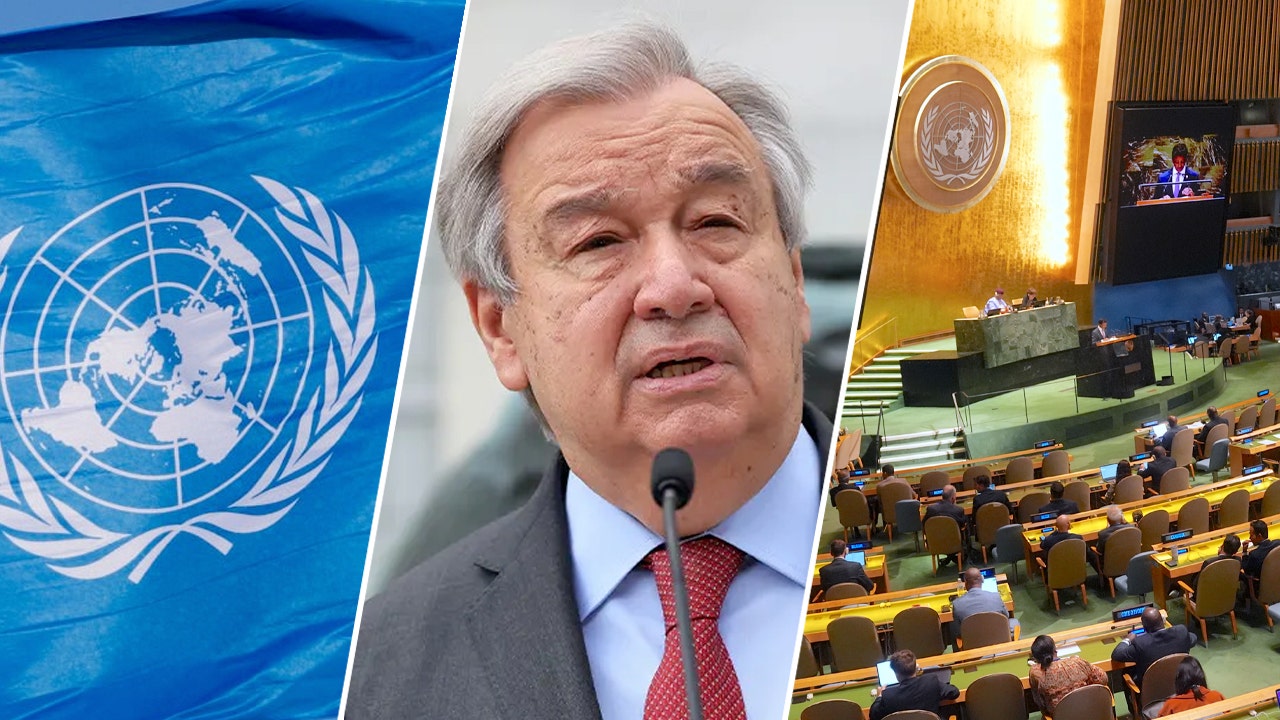The UN's "Pact for the Future" is a hollow agreement that will be used as a weapon against the United States, according to a warning from an expert.
The objective of the pact is to address 'global shocks' that affect shared concerns among nations.

An expert advises that the United States should oppose the proposed "Pact for the Future" by the United Nations (U.N.), which aims to shift the global forum's focus to issues it has not effectively addressed, according to the expert.
The Summit of the Future aims to endorse the Pact for the Future, which is an effort by the Secretary-General to revitalize global action and enhance the multilateral frameworks for the future, according to Brett Schaefer, a research fellow in International Regulatory Affairs at the Heritage Foundation's Margaret Thatcher Center for Freedom.
"Schaefer, a member of the U.N.'s Committee on Contributions from 2019 to 2021, argued that the international response to COVID-19 was flawed, peacekeeping is in retreat, negotiations are hindered by divergent priorities, and human rights violators hold power in the Human Rights Council and General Assembly. Instead of continuing on the current path, he suggested calling for reassessment, retrenchment, and refocus."
The High-Level week at the United Nations General Assembly will be preceded by the Summit for the Future, which was advocated for by Schaefer. According to Schaefer, U.N. Secretary-General António Guterres has been working towards this summit for the past three years through his annual reports, which focused on climate and pollution issues.
The pact would broaden its focus to include "global shocks," such as "cyber attacks" or "disruptions to international trade."
The pact aims to alter the way nations discuss wealth and productivity by suggesting the creation of new measures beyond GDP and transferring financial governance and voting power from institutions such as the IMF and World Bank to help accelerate the growth of developing nations.

Guterres expressed deep concern and interest in the governance of global commons, including the high seas, atmosphere, Antarctica, and outer space, as well as initiatives of shared interests among nations.
Schaefer cautioned that these initiatives, although appearing benevolent, would be too overwhelming for the organization to manage, given its unsuccessful track record with similar initiatives in the past, and would ultimately empower the U.N. to further pressure dissenting countries, such as the United States.
Schaefer stated that instead of adding more responsibilities to an organization that is already overwhelmed with its current duties, the U.N. should focus on areas where it can provide unique and valuable contributions, such as humanitarian assistance.
"The Pact for the Future will be added to the list of U.N. declarations used to criticize the United States, so it would be wise for the U.S. not to support it at the upcoming Summit."

During a press conference on Wednesday, U.S. Ambassador to the U.N. Linda Thomas-Greenfield expressed concerns about the pact, stating that member states still have reservations about it.
Thomas-Greenfield stated that while the U.N. Member State system has been working on a Pact for the Future over the past few months, they are not yet at an agreement.
""The negotiations are ongoing, and I believe we have made significant progress in aligning our priorities. However, there remain significant differences to be addressed," she stated."
No agreement that requires consensus will ever result in "100% happy" members, and the pact will contain elements that members will disagree with, which Thomas-Greenfield believed would be raised during the vote on the pact.

"She expressed her hope that we would reach our destination, despite the U.S.'s disappointment that some countries had spoken out on various issues yesterday, as we were so close."
"The G77, E.U., and we all agreed not to break silence. However, there are some who are still trying to add contentious issues to the pact, which may be challenging to achieve."
"The Russians have broken silence on 15 different issues, and they are not fond of any mention of sanctions. On the other hand, Saudi Arabia has spoken out about climate change, while others have discussed IFI reform."
"Although we had issues with the language, we were able to reach an agreement that we could accept it, despite not thinking it was perfect. The negotiations are still ongoing," she stated.
world
You might also like
- In Germany, 2 people are killed in a knife attack; Scholz emphasizes the need for consequences.
- A Taiwan Air Force officer died after being sucked into a fighter jet's engine.
- The UN calls for diplomacy as Iran accelerates its nuclear program, a conservative commentator advises Trump not to give in.
- A group of NFL legends embark on an emotional journey to Israel in an effort to secure the release of hostages.
- Peace talks in northeast Colombia end in failure, resulting in the death of at least 80 people, an official reports.



















